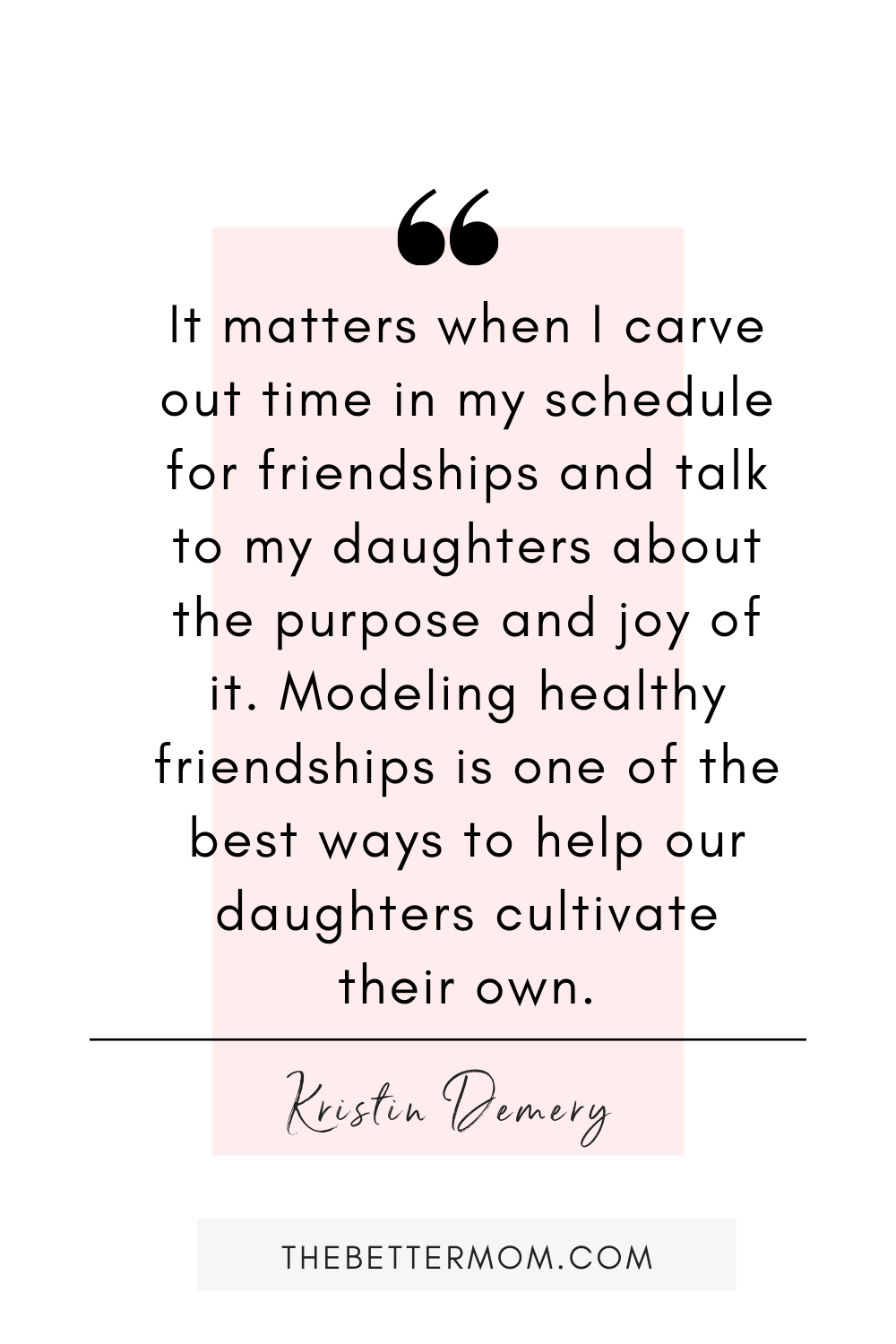5 Friendship Habits I’m Teaching My Daughters
Middle school was painfully awkward. An early bloomer, I reached my adult height by sixth grade. I towered over my peers that year, especially the boys. Paired with crooked teeth that weren’t tamed by braces until high school, glasses that weren’t replaced with contacts until I was 13, and a shy demeanor, and it could have been a recipe for a miserable existence.
Thankfully, I had great friends who helped me navigate the treacherous waters of gossip and junior high dances, academics and budding romances.
So when my coauthors and I wrote a friendship devotional for adult women, we quickly realized how many of our friendship issues—good and bad—stemmed from those early experiences. As a mom of three daughters, I want them to flourish in their friendships. Keeping these five friendship habits in mind gives me the confidence I need to help my daughters navigate their own friendships as they head into middle school.
Be the person who invites others. Even as an adult, it can be difficult to be the first one to reach out to others or invite someone new to spend time with us. My introverted self would like nothing better than to hunker down at home until someone invites me to do something. But those invitations matter. And, when we encourage our daughters to be the first one to reach out, they’re also more likely to notice those who are on the fringes and do their best to include them. If your child is worried about being rejected, remind her that she can always snag a current friend to go along with her when she approaches someone new to help remove the fear factor.
Assume the best. I’m guilty in my own life of sometimes being careless in my friendships. I don’t always respond quickly to text messages and phone calls, and as a result, that can leave the person on the other end wondering if they’ve done something wrong.
First, we can assist our daughters by helping them consider a couple of questions: What else might be going on in their friend’s life that day? Is she experiencing any challenges at home or at school? Instead of assuming a friend’s response (or lack thereof) is a reflection of us, let’s help our daughters reconsider whether or not it might instead be a reflection of their friend’s current circumstances.
Also, if our daughters have reached the age of phones or social media—or talk to their friends through their parents’ devices—they might benefit from discussions about how tone doesn’t always translate well online or via text. Discussing our own missteps in this area of friendship can help encourage our daughters to reach out for clarification rather than remaining miserable or in doubt.
Discern the difference between safe and unsafe friendships. When my friend Julie’s daughter mentioned that a girl at school was a “frenemy,” my friend gently pushed back on the idea that someone who is secretly an enemy could ever be a true friend.
A few questions can help our daughters determine who might be safe or unsafe:
How does she speak of others when they aren’t around? Does she poke fun at them?
How does she handle disagreements? Does she turn them into drama by trying to get others to take her side?
Does she tell lies or stretch the truth, even about small things?
Practice being a good listener. The Bible has a lot to say about being quick to listen and slow to speak (see James 1:19), but the truth is that it’s easy to fall into the trap of waiting for our turn to speak instead of truly listening. Giving someone our full attention (rather than looking at our phone or doing other tasks), asking questions, and repeating portions of what they’ve said back to us can all aid in active listening. In addition, listening well can help our daughters work on developing empathy.
Model good friendships and encourage daughters as they seek their own friendships. As my kids get older, I’ve realized that my own vulnerability in friendships matters. As a mom, it matters that I discuss (in age-appropriate ways that honor my own friendships) if a friend hurt my feelings and how I responded. It matters that I talk about feeling lonely or left out. It matters when I carve out time in my schedule for friendships and talk to my daughters about the purpose and joy of it. Modeling healthy friendships is one of the best ways to help our daughters cultivate their own.
It’s also important to prioritize friendships in the family calendar. Just as my husband and I set aside specific dates to spend time with our friends, we find pockets of time for our daughters to invite their friends to our house or to participate in events. This way, everyone in the family knows that setting aside time with friends is just as important as prioritizing work, school, church, and other activities.
Blessings,
Kristin Demery
Looking for additional encouragement for your daughter and her friendships? Kristin’s newest book, 100 Daily Acts of Friendship for Girls, is now available for preorder (releasing March 8, 2021).
Share this post:









